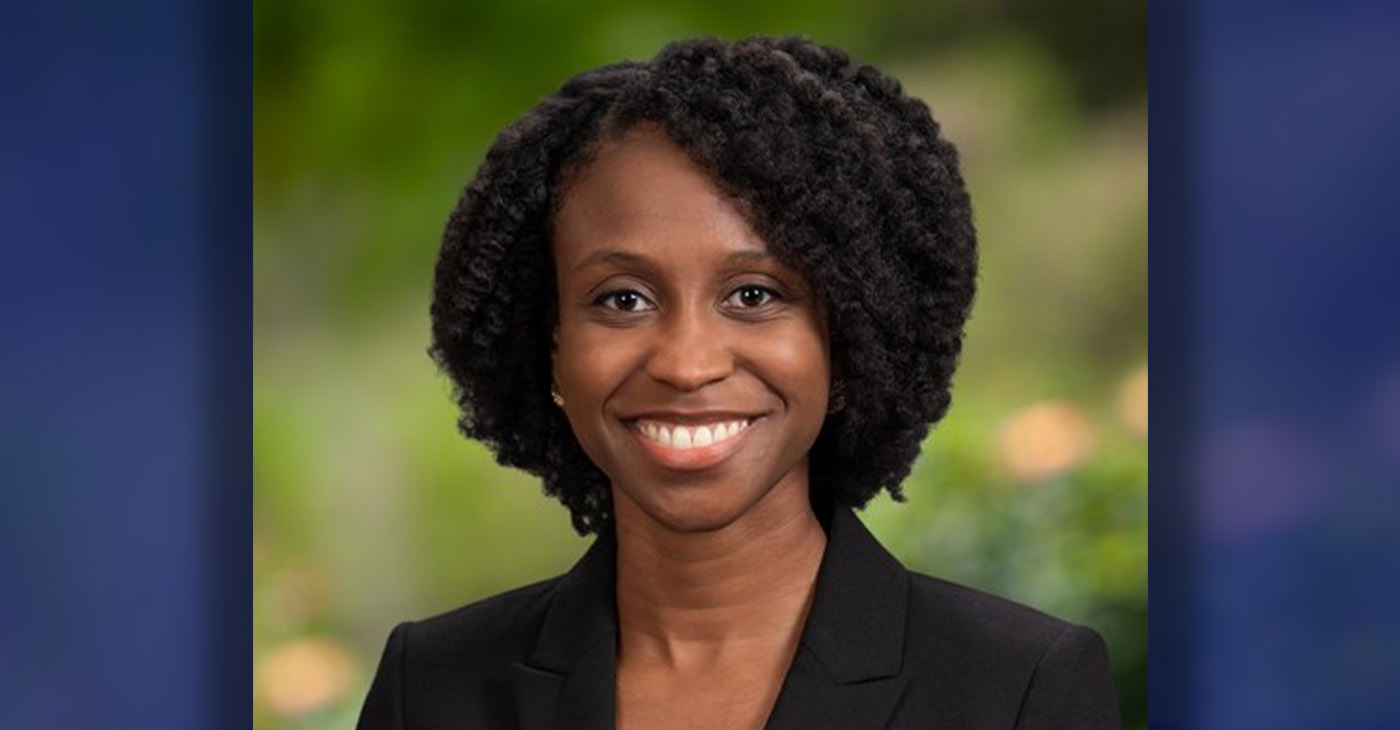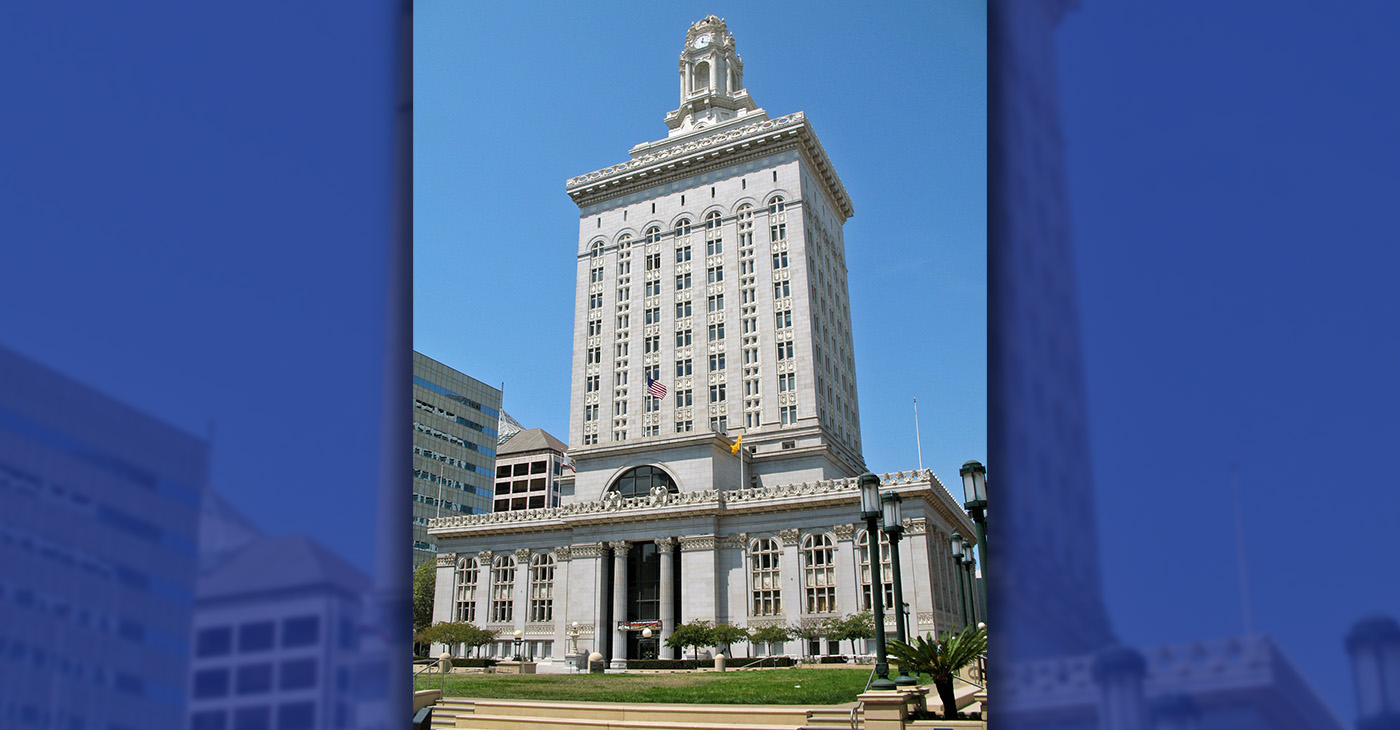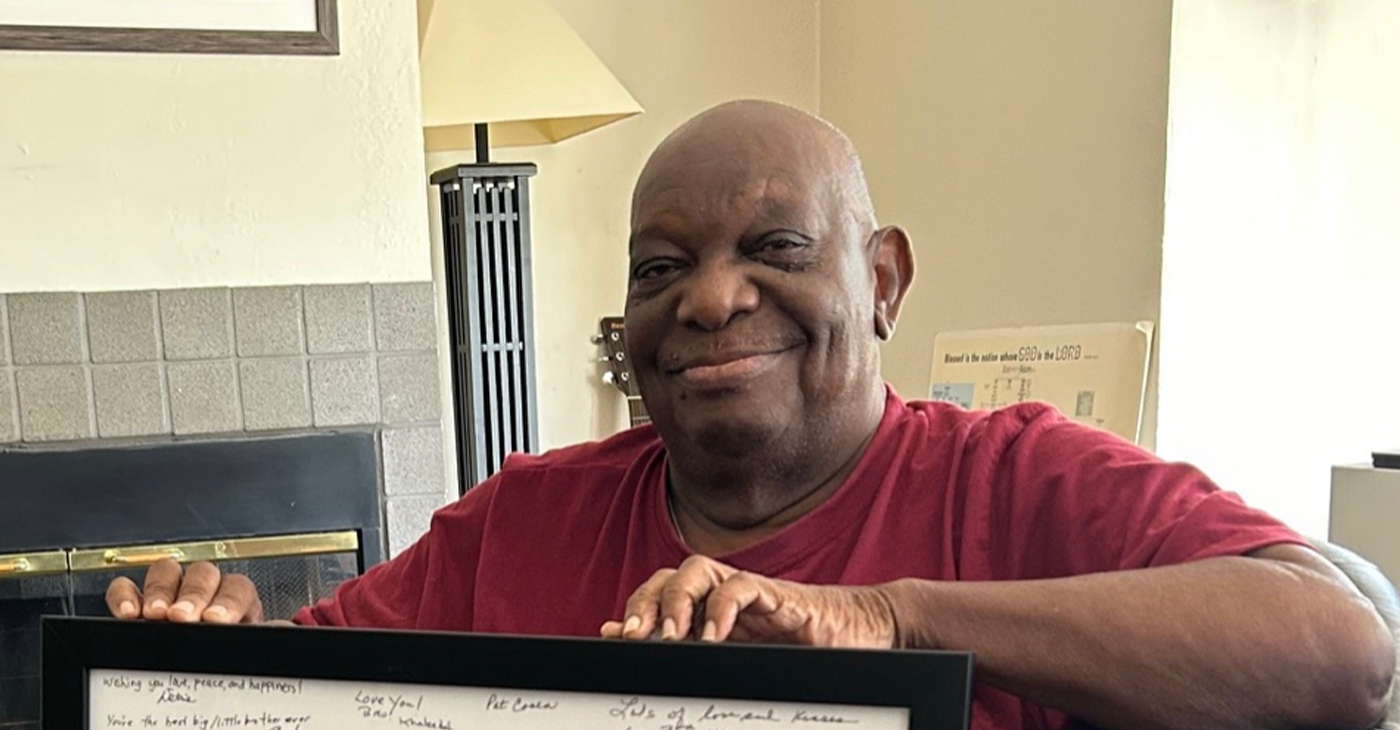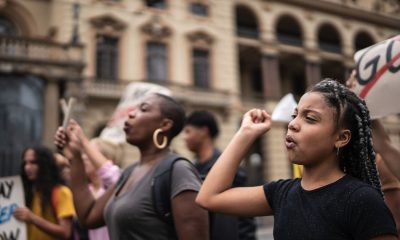COVID-19
Black Educators Take on Hesitancy as Gov. Newsom Issues COVID-19 Vaccination Mandate
Across California’s 58 counties, about 60% of the state’s population has been fully vaccinated. Black people account for about 5.8% of California’s population and 4% of those who have been vaccinated.

As the COVID-19 pandemic lingers on with Black Californians still lagging behind on getting fully vaccinated, leaders in the state, including Gov. Gavin Newsom, are taking steps to push more people to get the shot. It is the most effective way, public health experts say, we will end the global public health crisis.
To help slow the spread of COVID-19, Newsom signed an executive order late last month to extend telehealth services. Then, last week, the governor also made vaccines mandatory for all students at public and private schools.
California’s school vaccination mandate will take effect for students enrolled in grades 7 through 12 one semester after the U.S. Food and Drug Administration approves the vaccine for children 12 and older. The mandate will also apply to children under 12 after a vaccine is approved for that age group.
“The state already requires that students are vaccinated against viruses that cause measles, mumps, and rubella – there’s no reason why we wouldn’t do the same for COVID-19. Today’s measure, just like our first-in-the-nation school masking and staff vaccination requirements, is about protecting our children and school staff, and keeping them in the classroom,” Newsom said. “Vaccines work.
“It’s why California leads the country in preventing school closures and has the lowest case rates. We encourage other states to follow our lead to keep our kids safe and prevent the spread of COVID-19.”
Last month, Black educators from around the state met at the Reef Restaurant in Long Beach. One of the items on their agenda was getting to the bottom of why some Black Californians remain reluctant to get the COVID-19 vaccine.
The event, themed “Vaccine Hesitancy: Understanding the Science and Getting people to Trust It,” was a presentation held during a meeting co-hosted by the California Association of African American Superintendents and Administrators (CAASA), along with along with the Los Angeles County Alliance of Black School Educators and the National Coalition.
In the process, participants said they wanted to provide some historical context.
Lillie Tyson Head, daughter of a survivor of the United States Public Health Service Syphilis Study in Tuskegee, talked about the far-reaching damage caused by the controversial and unethical research project.
“The men were told that they had ‘bad blood’ and that they would receive treatment,” Head said. “They were never told they were in a study and the intent of the study.”
She said the federal government study fostered distrust among African Americans of the health care system.
“Forty-nine years after the study was exposed and 89 years after the study began, people, particularly in the African American communities, distrust certain medical treatment and medical research. And they are using this study as reasons for hesitating getting vaccinated or refusing to get vaccinated at all,” Head said.
Dr. Oliver Brooks, chief medical officer at the Watts Healthcare Center, said there are built-in biases in the medical system that contribute to African American skepticism.
“There are studies showing that African Americans are less likely to get cardiac studies and procedures, stents versus just medication. They get less treatment for pain when they come in with sickle cell and other injuries like femur fractures,” he said. “The mistrust with the medical system is valid. It is a decision based on primarily mistrust of the vaccine and mistrust with the healthcare system.”
Head also encouraged people to get vaccinated although she acknowledged that she understood why some Black people remain hesitant.
“How fortunate and blessed we are to know about the types of COVID vaccines that are available today,” Head said. “Why then should we deny ourselves getting vaccinated? We all have the opportunity to be informed, receive advice from professionals we trust and understand how we can protect ourselves by getting vaccinated.”
California Black Media’s coverage of COVID-19 is supported by the California Health Care Foundation.
Activism
ESSAY: Technology and Medicine, a Primary Care Point of View
The COVID-19 pandemic, for example, restricted millions of people to their homes, which required reliance on the internet for communication and information. Personal internet searches became essential to understanding information about COVID, human physiology, symptoms, and keeping up with vaccine updates. However, this increase in independent online research resulted in people accessing more misinformation circulating on the internet. This posed a challenge for medical providers trying to treat patients according to research-based guidelines. With so much information within reach, it was difficult for providers to help their patients distinguish between legitimate evidence-based sources and opinion, speculation, and fabrication.

Dr. Adia Scrubb
Special to California Black Media Partners

Technology has enhanced communication between medical professionals and patients; improved patient care management; and eased access to care and information, benefiting both patients and medical clinicians.
However, despite the ease and many conveniences these patient care improvements have ushered in, adequate patient care still includes physician supervision, examinations, and interaction, which present challenges for keeping up with demands on the healthcare system and accurate patient education.
Technology has made more educational resources available at our fingertips, and it has created independence for those who want to know more about their bodies.
The COVID-19 pandemic, for example, restricted millions of people to their homes, which required reliance on the internet for communication and information. Personal internet searches became essential to understanding information about COVID, human physiology, symptoms, and keeping up with vaccine updates. However, this increase in independent online research resulted in people accessing more misinformation circulating on the internet. This posed a challenge for medical providers trying to treat patients according to research-based guidelines. With so much information within reach, it was difficult for providers to help their patients distinguish between legitimate evidence-based sources and opinion, speculation, and fabrication.
Nowadays, patients continuously arm themselves with medical information and challenge clinicians with the research they gather from internet sources to advocate for themselves and their care. This often leaves medical professionals with the complex task of navigating challenging discussions, pointing patients to validated and verified medical information, and following evidence-based medical guidelines for treatment.
Reviewing information before an appointment can certainly make an office visit much more productive, but it is essential to acknowledge the possible bias and limitations of internet searches. Consideration of the author, source, and date of the information may help determine its validity.
Furthermore, simply asking medical professionals for their preferred patient information resources will direct patients to safe and validated information that is in line with standards of care practices. This can help patients better understand the recommendations from their doctors and streamline their internet searches.
Access to individual online medical record information, such as blood tests, MRI reports, and office visit notes, has been a significant expansion of technology in medicine. This digitization of medical information enables and positions patients to take a leading role in managing their care. What used to be multiple sheets of paper in a large file folder is now a click away at any time. Despite these benefits, instant access can be overwhelming for both patients and medical providers, especially since patients, in many instances, can receive their test results online before the physician has had the opportunity to review them.
Patients may review the office visit notes or their lab results out of context or misinterpret information, which can lead to anxiety, confusion, and fear. Clinicians are put in a difficult position when they are not able to suddenly break away from their scheduled office visits to reassure an unscheduled patient about their results and next steps.
Medical providers have tools to assist with identifying sensitive results that need urgent review, and efforts are made to notify anxious patients as soon as possible. However, a patient can be proactive in scheduling a follow-up visit ahead of time to review results with their provider specifically. This can help patients avoid the stress of suddenly trying to get a hold of their doctor when dealing with unclear or concerning results. Normal test results often don’t require explanation, but allowing several days for your provider to work through hundreds of test results before sending messages requesting clarification will help medical professionals prioritize their responses to test results based on medical urgency.
Technological improvements such as online messaging and video/telephone appointments have made access to care much easier both for patients and clinicians. Telephone and video visits have been especially beneficial for patients who are elderly, disabled, or do not have access to transportation. However, the increase — and ease of — access has created much higher demand for physician time both during and outside of the office visit. Test results, patient messages, insurance forms, emails, and medication requests are all pouring in while providers conduct their daily scheduled appointments. Thus, very little time is left in the day for a clinician to respond to every email, fill out every form, and review every lab result when they are responsible for 1,800 or more patients.
This situation, unfortunately, creates a perceived delay in response in a culture where an instant response is expected from messaging and phone calls. But the reality is that the medical provider is constantly playing catch up to thousands of inquiries due to the around-the-clock online access patients now have.
Patients can make the most of their experience and their physician’s time by taking the time to learn their physician’s communication preferences. Despite the multiple modalities of access (telephone, email, video, in-person), a medical provider will have a preferred method of communication with their patients. Some may ask their patients to make an appointment to explain a complex topic, instead of responding to multiple messages. Others may prefer to communicate via phone call if they have to deliver bad news.
There will likely be more medical providers who prefer to communicate only through email or video appointments as remote work becomes more common. If a patient’s communication preferences align with their physician’s preferences, it will create a stronger patient-doctor relationship and foster more effective and impactful communication.
The expansion of technology in medicine has fostered better collaboration, communication, and education between patients and their medical professionals. Combining electronic resources with rapport, mutual respect, and trust for providers will help patients navigate this new landscape of healthcare.
About the Author
Dr. Adia Scrubb, MD, MPP, is a Board-Certified Family Medicine Physician currently practicing in Solano County.
Alameda County
After Years of Working Remotely, Oakland Requires All City Employees to Return to Office by April 7
City Administrator Jestin Johnson recently told city unions that he is ending Oakland’s telecommuting program. The new policy will require employees to come to work at least four days a week. These new regulations go into effect on Feb. 18 for non-union department heads, assistant and deputy directors, managers, and supervisors. All other employees must be back at work by April 7.

By Post Staff
The City Oakland is requiring all employees to return to the office, thereby ending the telecommuting policy established during the pandemic that has left some City Hall departments understaffed.
City Administrator Jestin Johnson recently told city unions that he is ending Oakland’s telecommuting program. The new policy will require employees to come to work at least four days a week.
These new regulations go into effect on Feb. 18 for non-union department heads, assistant and deputy directors, managers, and supervisors. All other employees must be back at work by April 7.
The administration may still grant the right to work remotely on a case-by-case basis.
In his memo to city unions, Johnson said former President Joe Biden had declared an end to the pandemic in September 2022, and that since then, “We have collectively moved into newer, safer health conditions.”
Johnson said “multiple departments” already have all their staff back in the office or workplace.
The City’s COVID-era policy, enacted in September 2021, was designed to reduce the spread of the debilitating and potentially fatal virus.
Many cities and companies across the country are now ending their pandemic-related remote work policies. Locally, mayoral candidate Loren Taylor in a press conference made the policy a central issue in his campaign for mayor.
City Hall reopened for in-person meetings two years ago, and the city’s decision to end remote work occurred before Taylor’s press conference.
At an endorsement meeting last Saturday of the John George Democratic Club, mayoral candidate Barbara Lee said she agreed that city workers should return to the job.
At the same time, she said, the city should allow employees time to readjust their lives, which were disrupted by the pandemic, and should recognize individual needs, taking care to maintain staff morale.
The John George club endorsed Lee for Mayor and Charlene Wang for City Council representative for District 2. The club also voted to take no position on the sales tax measure that will be on the April 15 ballot.
Activism
Freddie Ray Turner, 75
Fred enjoyed a 27-year career (1972-1999) with the Oakland Unified School District. Starting as a classroom teacher, he went on to serve as a vice principal, principal and retired as director of Student Services. But retirement was not in the cards for Fred. He went on to serve as the Fremont Unified School District’s director of Pupil Services for five years, retiring in 2004.

Special to The Post
Freddie Ray Turner was born in Mesa, Arizona, on July 15, 1949, the youngest of Carlanthe and Jimmie Turner’s seven children. Fred attended the Chandler public schools and graduated high school in 1966. He earned a Bachelor of Arts degree in Drama and Spanish from Arizona State University in Tempe, Arizona.
Relocated to the Bay Area, he continued his education, and earned a master’s degree in Education Administration from California State University-Hayward.
Fred enjoyed a 27-year career (1972-1999) with the Oakland Unified School District. Starting as a classroom teacher, he went on to serve as a vice principal, principal and retired as director of Student Services. But retirement was not in the cards for Fred. He went on to serve as the Fremont Unified School District’s director of Pupil Services for five years, retiring in 2004.
Throughout his life, Fred traveled the world. He didn’t just have a “travel bug,” Fred was a travel bug. He graduated from overnight stays in youth hostels in Paris, Rome, and Madrid to vacationing in much finer accommodations in Kenya, Turkey, China, Japan, Spain, Italy, Portugal, Israel, Amsterdam, and South Africa. If there was an airport, at some time in his life Fred Turner landed in it.
Fred was a devoted member of Brother-to-Brother from 2005 until his passing. He was also a life associate of the East Oakland-Hayward section of the National Council for Negro Women, an organization he strongly supported since 2013. Fred also served on the Board of Directors for the Leadership Institute at Allen Temple Baptist Church.
An avid reader, Fred’s response to the lockdown caused by the 2020 COVID pandemic was to organize “Plot Chasers,” a close group of friends who meet weekly to read and discuss short stories.
Fred passed away on Dec. 15, 2024, following a brief hospitalization. He was predeceased by his parents, his sister, Madelyn, and brothers Robert Lee and Franklin Eugene.
He leaves to mourn his surviving siblings Artie Mae Clark, Dorothy Rome, and Jimmie Richard Turner; first cousin, Catherine Markham; a host of nieces and nephews, great- nieces and nephews, and very close friends.
A Celebration of Life Service will be held at 12:30 p.m. on Saturday, Feb. 8, at Allen Temple Family Life Center, 8501 International Blvd., in Oakland, CA.
In lieu of flowers, the family is asking that friends honor Fred’s memory with a donation in Fred’s name to the National Alzheimer’s & Related Disorders Association, or to the East Bay AIDs Advocacy Foundation.
-

 Activism4 weeks ago
Activism4 weeks agoDesmond Gumbs — Visionary Founder, Mentor, and Builder of Opportunity
-

 Activism4 weeks ago
Activism4 weeks agoFamilies Across the U.S. Are Facing an ‘Affordability Crisis,’ Says United Way Bay Area
-

 Alameda County4 weeks ago
Alameda County4 weeks agoOakland Council Expands Citywide Security Cameras Despite Major Opposition
-

 Alameda County4 weeks ago
Alameda County4 weeks agoBling It On: Holiday Lights Brighten Dark Nights All Around the Bay
-

 Activism4 weeks ago
Activism4 weeks agoBlack Arts Movement Business District Named New Cultural District in California
-

 Activism4 weeks ago
Activism4 weeks agoLu Lu’s House is Not Just Toying Around with the Community
-

 Activism4 weeks ago
Activism4 weeks agoOakland Post: Week of December 17 – 23, 2025
-

 Black History3 weeks ago
Black History3 weeks agoAlfred Cralle: Inventor of the Ice Cream Scoop




















































